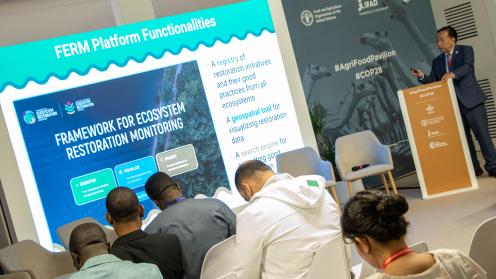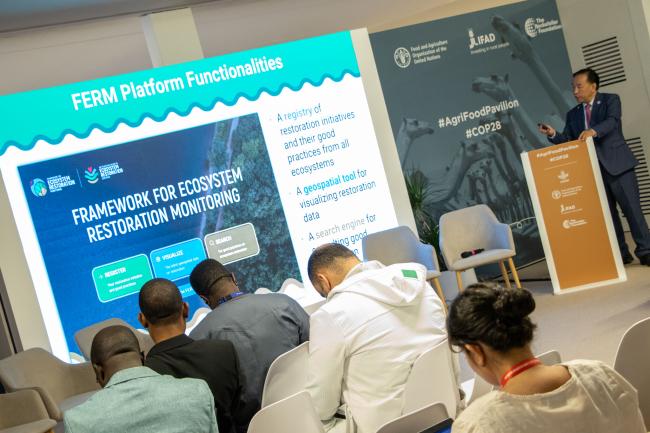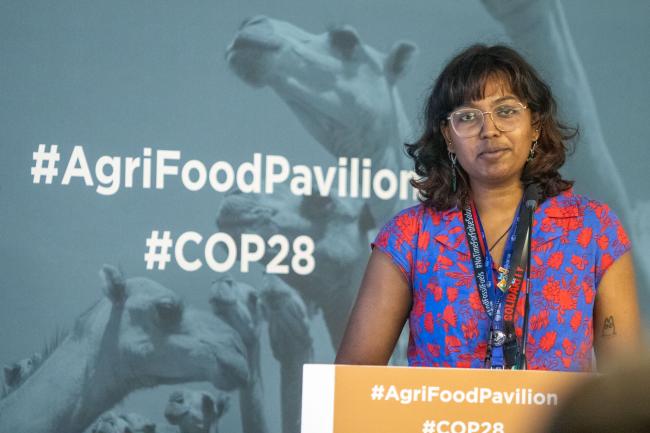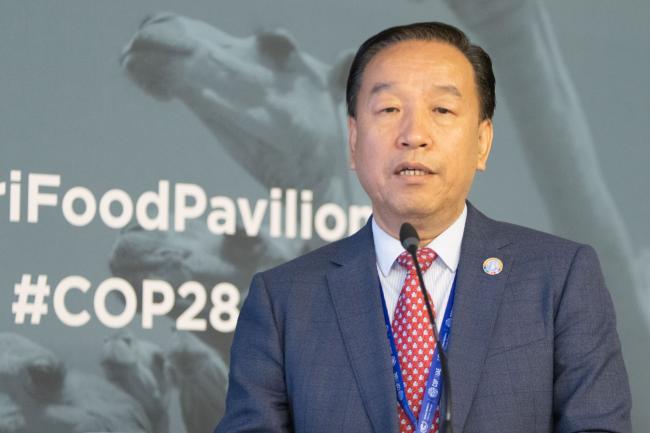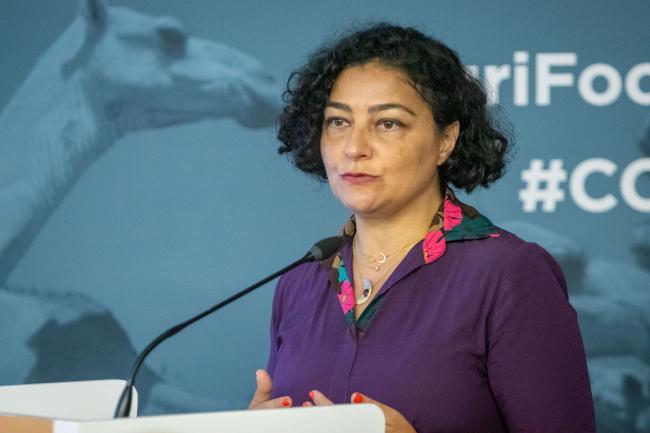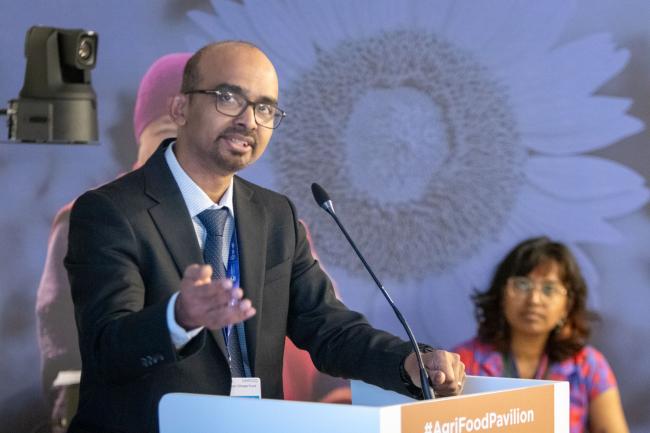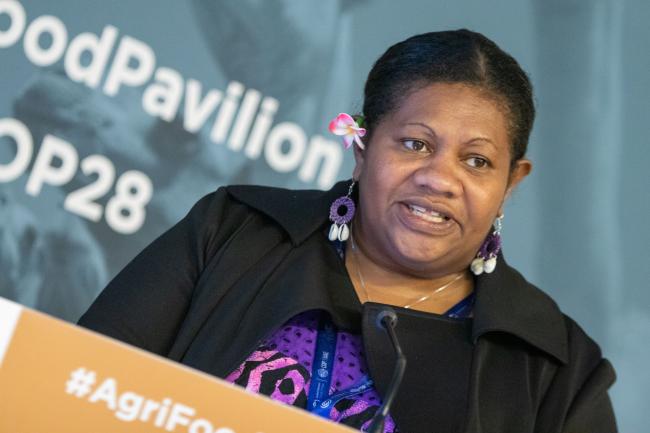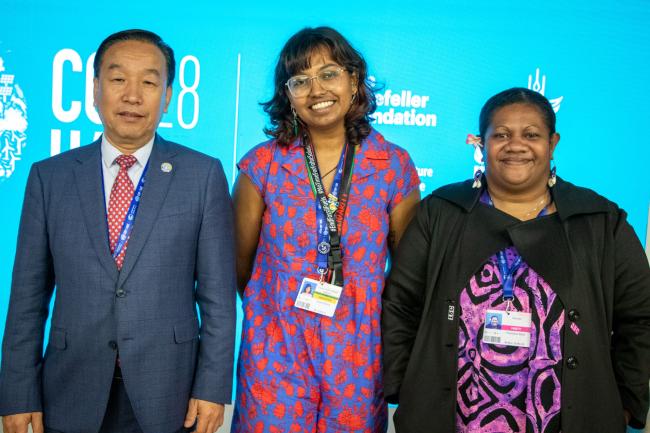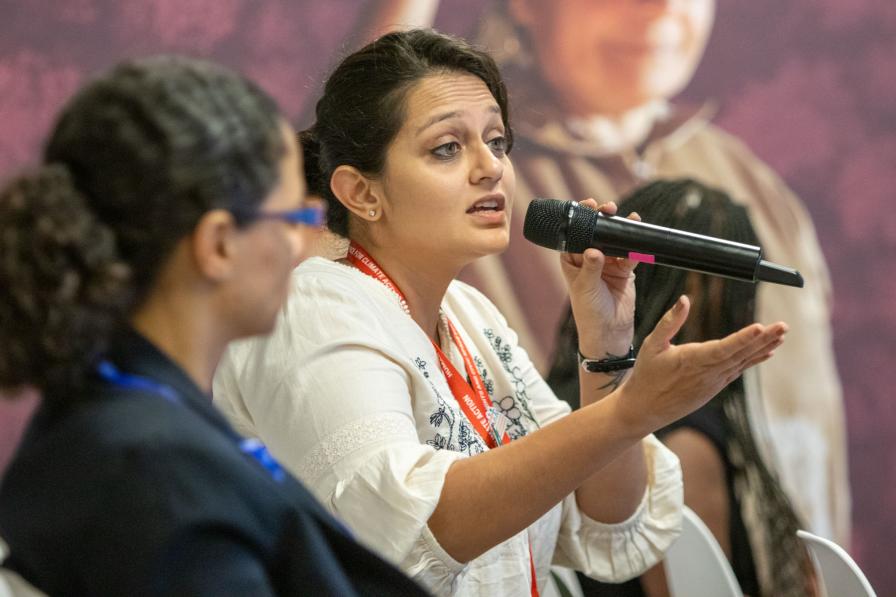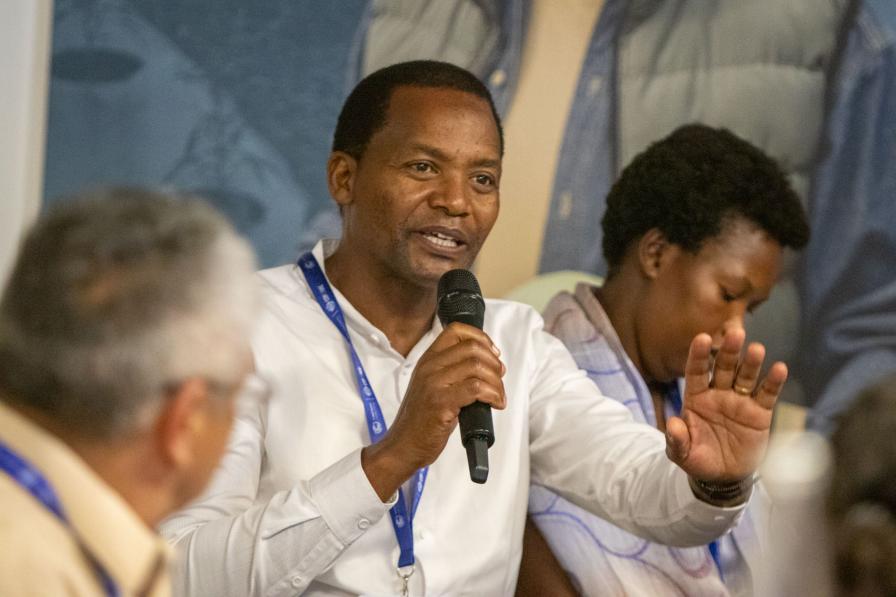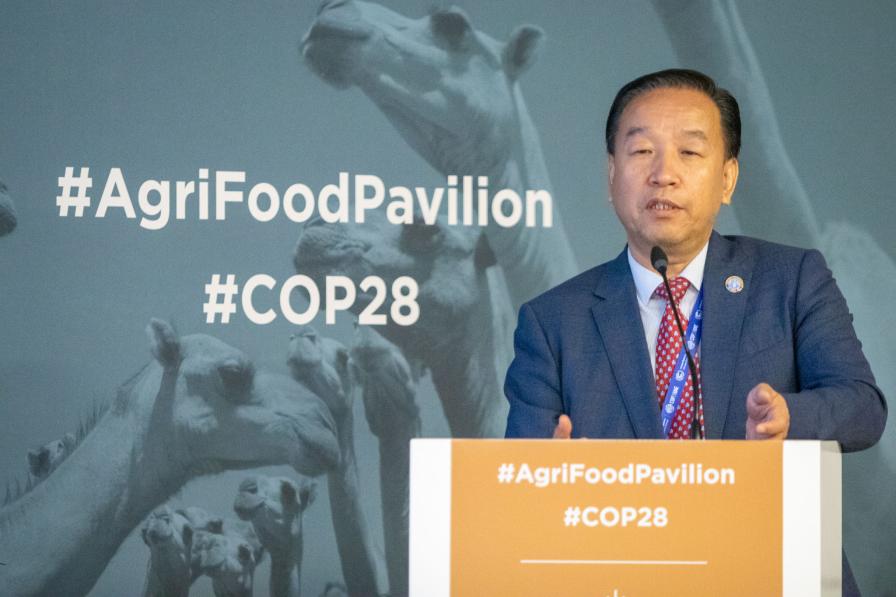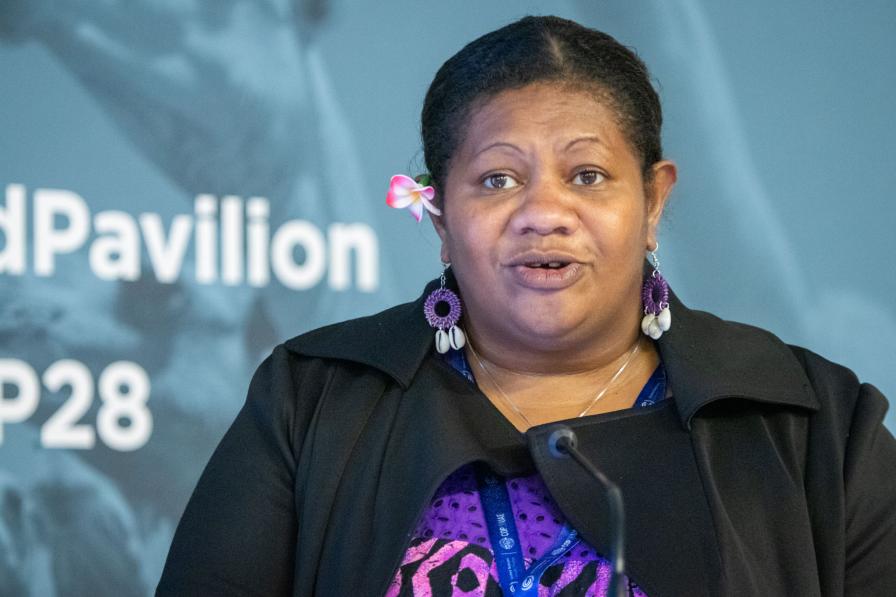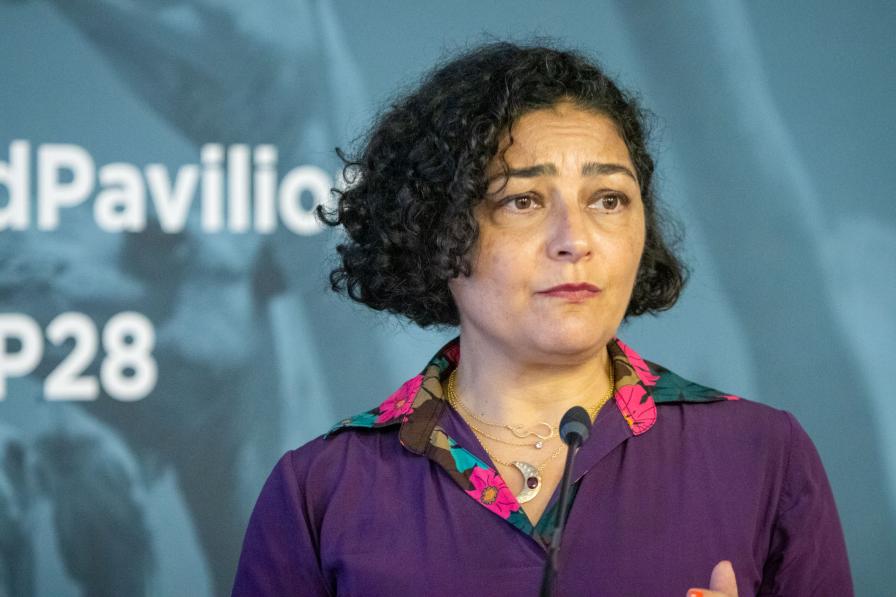Summary
Scaling up ecosystem restoration will require tangible on-the-ground actions to combat climate change, biodiversity loss, and land degradation.
Ecosystem Restoration to Combat Global Warming, Biodiversity Loss and Food Insecurity: Scaling Up via the UN Decade on Ecosystem Restoration
Ecosystems are the backbone of planetary wellbeing, providing crucial services such as clean air, water, fertile soil, and biodiversity to support all life forms. Ecosystem restoration, in turn, is needed to maintain and build carbon sinks, including through reforestation and afforestation. The UN Decade on Ecosystem Restoration 2021–2030 aims to prevent, halt, and reverse the degradation of ecosystems on every continent and in every ocean.
This event, taking place on Nature, Lands, and Oceans Day at the COP 28, addressed the critical importance of a shared vision, standards of practice, and harmonized monitoring tools for achieving the ambitious goals of the UN Decade on Ecosystem Restoration, especially in support of restoring ecosystem health and productivity.
Ayadi Mishra, Youth Representative to the UN Decade Advisory Board, moderated the event, highlighting the role of the UN Environment Programme (UNEP) and the Food and Agriculture Organization of the UN (FAO) in spearheading the UN Decade’s implementation. She drew attention to policy tools and guidance, such as the Framework on Ecosystem Restoration Monitoring (FERM), to track restoration of degraded ecosystems.
In welcoming remarks, Zhimin Wu, Director of the Forestry Division, FAO, on behalf of Maria Helena Semedo, Deputy Director-General, FAO, highlighted that scaling up ecosystem restoration will require tangible on-the-ground actions to combat climate change, biodiversity loss, and land degradation. He noted the need to align to commitments such as: the UN Convention to Combat Desertification decision to accelerate the restoration of one billion hectares of degraded land by 2030; the Strategic Plan for Forests 2017–2030; and the 2030 Agenda for Sustainable Development.
In a keynote speech, Mirey Atallah, UNEP, said ecosystem restoration is key to achieving the Paris Agreement goal to limit global warming to 1.5°C, and that creating resilient communities and economies requires resilient ecosystems. Ecosystem restoration, she added, entails recovery of ecosystem functions such as water cycles and soil regeneration. Noting that there are no quick fixes for nature restoration, she highlighted the importance of adaptive approaches, citing the Sixth Assessment Report of the Intergovernmental Panel on Climate Change findings on climate-induced shift of plants and animals to higher latitudes. Thus, ecosystem restoration, she emphasized, cannot target a return to previous states but must plan for projected species composition changes.
She highlighted the launch of 10 World Restoration Flagships at the margins of the high-level segment during UN Convention on Biodiversity COP 15. She underscored the need to change financial flows, citing the UNEP State of Finance for Nature report, which illustrates the need to repurpose the annual amount of USD 7 trillion that goes into nature-negative investments towards nature conservation. She pointed to the contrasting low figure of USD 200 billion per year that supports conservation in the areas of climate, land, and nature.
Bapon Fakhruddin, Green Climate Fund (GCF), said the GCF has taken the opportunity to scale up financing for ecosystem restoration. He stressed the imperative for synergies, noting interlinkages among 2030 climate, biodiversity, and land restoration targets. He noted that the GCF 50 x 30 vision is aligned to the same timeline and aims to efficiently manage USD 50 billion by 2030 and enhance the Fund’s impact.
Pauliane Basil, Ministry of Climate Change Adaptation, Meteorology and Geo-Hazards, Energy, Environment and Disaster Management, Vanuatu, expressed her country’s commitment to ecosystem restoration through ground-breaking projects aligned with the UN Decade’s vision. She highlighted among others, the Integrated Sustainable Coastal and Land Management initiative across Gaua, South Pentecost, Efate, Tanna, and Aneityum, and the Ecosystem Restoration and Sustainable Land Management in Tongoa Island. She further noted participation in the SIDS Flagship Initiative alongside St. Lucia and Comoros, focusing on Maskeliyn and Nguna-Pele.
Wu described the UN Decade as a global challenge aimed at restoring health and wellbeing of all life on Earth and that of future generations, and presented an overview of joint implementation with UNEP. The UN Decade, he said, targets: restoring the relationship between humans and nature; increasing the area of healthy ecosystems; and ending ecosystem loss, fragmentation, and degradation. He noted that implementation is grounded on three pathways: building a global movement, generating political support, and developing technical capacity. He further reported progress achieved through the ten World Restoration Flagships, noting that the second round of selections would be made in February 2024. He drew attention to the development of tools to monitor and support implementation, including the 10 Principles for Ecosystem Restoration which are critical to Standards of Practice to Guide Ecosystem Restoration and the FERM.
In closing remarks, Wu highlighted that the urgency of ecosystem restoration needs to be met with strong political will and partnerships to speed up and scale up successes and best practices. He concluded by noting the importance of joint efforts, quoting an African proverb, “If you want to go fast, go alone. If you want to go far, go together.”
Organizer: FAO
Contacts: Amy Duchelle, Amy.Duchelle@fao.org | Andrea Romero, andrea.romeromontoya@fao.org
For more information: https://www.decadeonrestoration.org/
To receive free coverage of global environmental events delivered to your inbox, subscribe to the ENB Update newsletter.
All ENB photos are free to use with attribution. For this COP 28 side event, please use: Photo by IISD/ENB | Matthew TenBruggencate.
